Higher education in Portugal for international students
- Education information
- Higher Education in Portugal for foreign students
- TOP 10 universities in Portugal for foreign students
- Accommodation at Portuguese Universities
- How to apply to Higher Education Institutions in Portugal for International Students
- Language Requirements in Portuguese Universities
- Literature and references
-
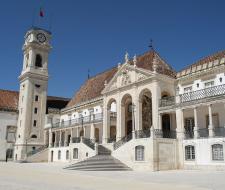 from 7681.00 $ / yearApply with documents
from 7681.00 $ / yearApply with documents -
 from 3114.00 $ / yearApply with documents
from 3114.00 $ / yearApply with documents -
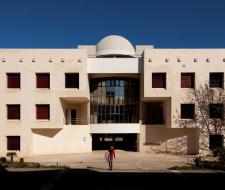 from 3460.00 $ / yearApply with documents
from 3460.00 $ / yearApply with documents -
 from 6035.00 $ / yearApply with documents
from 6035.00 $ / yearApply with documents -
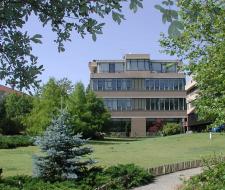 Apply with documents
Apply with documents -
 Apply with documents
Apply with documents -
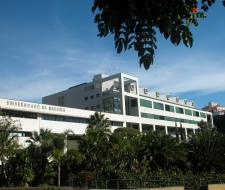 Apply with documents
Apply with documents -
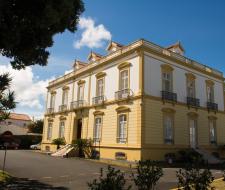 from 2500.00 $ / yearApply with documents
from 2500.00 $ / yearApply with documents -
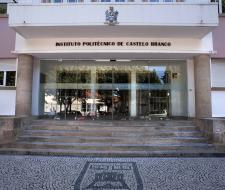 Apply with documents
Apply with documents -
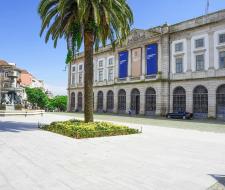 from 3500.00 € / yearApply with documents
from 3500.00 € / yearApply with documents
Alternative destinations
Education information
Portugal is part of the pan-European strategy of mobility and modernization of education implemented by the Bologna System, which means that the Portuguese education system includes 12-year schooling, a three-stage format of higher education, divided into bachelor's degree (Licenciado), Master's degree (Mestre) and doctorate (Doutor). The state invests heavily in the educational system: annual expenditures on education account for more than 10% of the state budget, including 18.3% for higher education. Education in Portugal is not so popular among foreign students, because the country's leading universities are more likely to teach in Portuguese and require language tests. This compensates for the relatively low cost of education, the high quality of curricula, internationally recognized diplomas, and the average cost of accommodation and meals for Europe. In addition, Portuguese is one of the world's languages: about 240 million people are native speakers around the world, so this knowledge can be a good plus for a future resume, a step towards an international career.
Studying in Portugal gives you the opportunity to explore the rich history of the country, to see the treasures mined during the world geographical discoveries, enjoy breathtaking beaches and a mild climate that attracts vacationers even in winter. From the mountains in the north to the rolling plains in the south, Portugal is characterized by an eclectic mix of natural beauty and culturally rich urban spaces.
We pay attention that thanks to the Bologna Process, the higher education in Portugal is consistent with other European countries, which makes Portuguese bachelor's, master's and doctorate degrees comparable to European countries. Portugal distinguishes between research-oriented universities and practice-oriented polytechnics. Most courses are taught in Portuguese, but the number of programs in English is increasing, especially at the Master's level.
Higher Education in Portugal for foreign students
Portugal boasts a robust higher education system, with 47 universities, 74 polytechnic institutes, and 6 police/military academies. Out of these institutions, 13 Portuguese universities have secured spots in global higher education rankings. The nation sees an average enrollment rate of 64% in its higher education institutions, underscoring its appeal to both domestic and international students.
Degrees from universities in Portugal are highly regarded, especially among students aiming for significant career trajectories in business sectors and government roles. On the other hand, polytechnic courses are tailored for those seeking a practical orientation in their studies. This path often leads to swift immersion into the workforce, opportunities for internships overseas, and the advantage of an international diploma to bolster employment prospects.
The structure of higher education in Portugal is delineated into three primary cycles: bachelor's, master's, and doctoral degrees. Each of these cycles comes with its set of general qualification requisites. A hallmark of the Portuguese higher education system is its adherence to the ECTS system. This system smoothens the transition for students aiming to transfer to other international universities and ensures that their previously completed courses are duly recognized.

What firstly should be considered when choosing a university?
It depends on the student - everyone determines the most important criteria for himself. I would advise you to take several rankings and compare them with each other, plus take into account the cost of the course, the location of the university and its scale, the percentage of graduates' employment. See where graduates continue their studies or where they go to work.
TOP 10 universities in Portugal for foreign students
|
University |
Position in international ranking |
Tuition fee for foreign students |
|
University of Lisbon, Lisbon |
214 |
From 1063,5€/year. |
|
University of Porto, Porto |
218 |
From 3000€/year. |
|
University of Nova de Lisboa, Lisbon |
408 |
From 2097€/year. |
|
University of Coimbra, Coimbra |
412 |
From 7000€/year. |
|
University of Minho, Braga |
432 |
From 4500€/year. |
|
Aveiro University, Aveiro |
536 |
From 4000€/year. |
|
Polytechnic Institute of Porto, Porto |
970 |
From 2823€/year. |
|
Universidade do Algarve, Faro |
976 |
From 3000€/year. |
|
University of Beira Interior, Covilha |
1093 |
From 5000€/year. |
|
University of Evora, Evora |
1125 |
From 2270€/year. |
Accommodation at Portuguese Universities
Dormitories within campus grounds are not a common feature in Portuguese universities. As a result, students often seek private housing, the cost of which can vary depending on the distance from the university. Due to high demand, affordable, quality rental spaces are limited. Universities do, however, extend a helping hand, suggesting trusted accommodation sources from private landlords. International students, in particular, have a capped number of accommodation spots available on a "first-come, first-served" basis, making early applications essential. Shared student housing emerges as a favorable option due to the opportunities it offers for social interaction and its cost-effectiveness, with prices generally ranging between 150-300€ per month.
How to apply to Higher Education Institutions in Portugal for International Students
Those looking to pursue a Bachelor's degree in Portugal apply through the centralized portal, Candidatura Online. As part of the process, candidates can shortlist up to six universities based on their preferences. For Master's courses, applications are made directly on the respective university's website. It's imperative to note that some universities might require translated documentation in Portuguese.
Each year, the number of available study spots across both public and private universities and polytechnic institutes is released by the Portuguese Ministry of Education. Admission is largely merit-based, with students' average scores playing a decisive role.
Portuguese universities follow a tri-semester application system, aligned with autumn or spring class commencements. While exact submission deadlines should be confirmed with individual institutions, the general timelines are: first round in April-May, second in June-July, and the third in August-September.
For Bachelor's admissions, international students must present a validated certificate of complete secondary education. Some universities may also necessitate an entrance exam, which non-EU students can typically take at a Portuguese Embassy in their home country. Queries regarding entrance exams should be directed to the Higher Admissions Committee (Gabinetes de Acceso).
Master's program candidates should have an equivalent Bachelor's degree. For Doctorate admissions, a relevant Master's degree is mandatory. The Bologna Agreement facilitates the recognition of foreign Bachelor's and Master's degrees by Portuguese institutions, eliminating the need for complex international equivalences.
Commonly required documents include:
-
A filled-out application form
-
Relevant educational certificates and diplomas (high school, bachelor's, or master's)
-
Academic transcripts
-
A motivation letter
-
Portfolio (for specific courses)
-
Proof of registration fee payment (typically 50€).
Language Requirements in Portuguese Universities
The primary language of instruction in most universities in Portugal is Portuguese. Therefore, demonstrating proficiency, typically at B1/B2 level, is essential for Bachelor's programs. Master's and Doctoral programs may be more lenient in this regard, especially those tailored for international students, which often use English as the medium of instruction.
For non-native English speakers, English proficiency might also need validation, with common tests being IELTS, TOEFL, CAE/CPE, and PTE A. Required scores vary but generally fall between 5.5 to 6.5 for IELTS or 550 points (paper-based), 213 points (computer-based), or 80 points (internet-based) for TOEFL.
General statistics on education in Portugal - rankings, specialties, universities
Learning programs-summary information
| Name | Meaning | Equivalent | Min. age | Duration, years |
Next stage | Cost |
|---|---|---|---|---|---|---|
| GCSE | General certificate of secondary education | secondary education (non-accomplished) | 14 | 1–2 | A-Levels | 15,000 USD+ |
| A-Levels | Advanced level | secondary education (accomplished) | 16 | 2 | University | 15,000 USD+ |
| BTEC | Business and Technology Education Board | secondary special education | 14 | 2–3 | University/ work | 15,000 USD+ |
| Oxbridge Preparation | Preparing for Oxford and Cambridge | secondary education (accomplished) | 17 | 1 | University | 15,000 USD+ |
| International Baccalaureate | International baccalaureate | secondary education (accomplished) | 16 | 2 | University | 18,000 USD+ |
| Foundation/ Pathway Year | Preparatory year | admission to the 1st year of university | 17 | 1 | University | 14,000 USD+ |
| NCUK | The Northern consortium | 2 year university | 17,5 | 1 | 2 year University of NCUK | 13,000 USD+ |
| Special Preparation (Medics/Math/Business) | Specialized training | - | 14 | optional | optional | 4,000 USD+ |
| Academic English | Academic English | Language school | 8 + | 6–12 months | School or University | 8,000 USD+ |
Top 15 best universities in Switzerland 2024
| 1 | Glion Institute of Higher Education Switzerland |
| 2 | Les Roches International School Montana |
| 3 | César Ritz Colleges Switzerland |
| 4 | IHTTI School of Hotel Management |
| 5 | Ecole Hoteliere de Lausanne |
| 6 | Geneva Business School |
| 7 | EU Business School Montreux |
| 8 | HIM Hotel Institute Montreux |
| 9 | Swiss Hotel Management School |
| 10 | Webster University Geneva |
| 11 | Business and Hotel Management School |
| 12 | Luzern IMI |
| 13 | Swiss Hotel Management School (SHMS) Caux |
| 14 | International University in Geneva |
| 15 | Culinary Arts Academy Switzerland |
Top 10 best universities in Netherlands 2024
Literature and references
- Ensino Superior: regras de acesso vão mudar. Aqui fica tudo o que já se sabe para este ano e os seguintes
- Higher education in Portugal — Wiki
- Higher education: Portugal — European Commission
- Ensino superior em Portugal — Wiki
- Portugal com o maior número de sempre de alunos do ensino superior
- Ensino superior para todos: mais apoios, mais cedo



